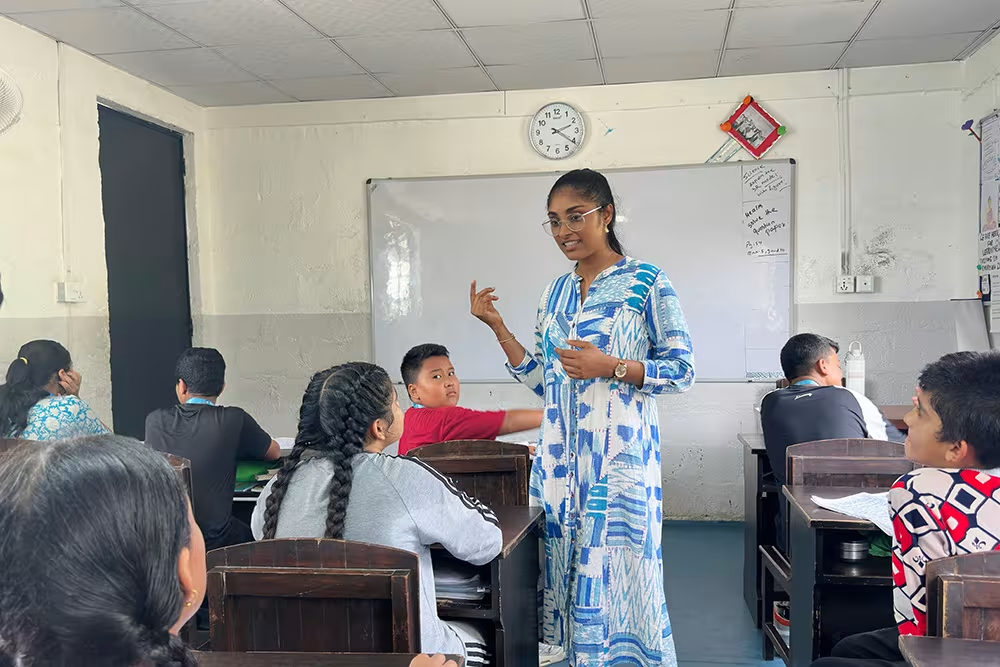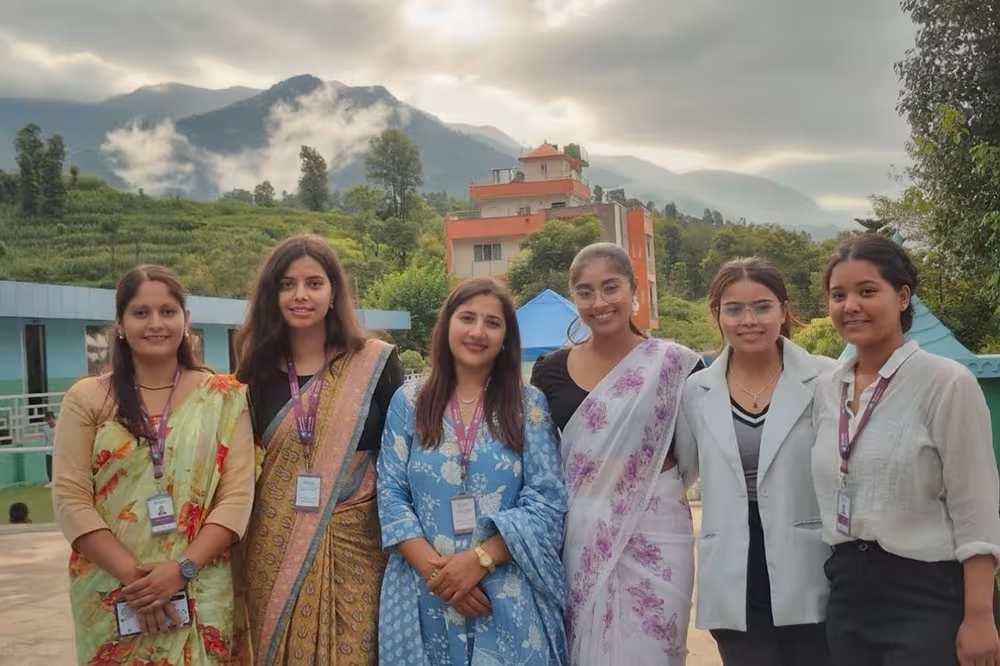“One day we will write our own stories in English,” a ninth-grade student told me as she carefully sounded out new words from a book we had just introduced. That single sentence captured the hope at the center of my summer: that curriculum isn’t just about grammar or vocabulary, but about giving students the tools to tell their own stories, to see themselves as voices worth hearing.
Growing up in Guyana and later living in New York as a first-generation student and daughter of immigrants, my earliest lessons in policy came not from textbooks but from lived experience: navigating schools, housing, and health systems. Those experiences pushed me to ask questions of fairness and opportunity here at home.

This summer, though, I found myself far from New York, designing and teaching an English curriculum at a community school in Dhading, Nepal. At first glance, it might seem like a leap: why would a domestic policy student spend twelve weeks in a rural district halfway across the world? But for me, stepping into that classroom was about more than teaching; it was about learning how systems, resources, and opportunities shape young lives everywhere.
The curriculum I developed was built around accessibility and engagement. We used stories like Looking for Alaska and The Littlest Pony as windows into creativity and critical thinking. Each text became a platform for vocabulary games, debates, creative writing prompts, and even small theatrical performances. What mattered most wasn’t whether students got every word right, but that they saw themselves reflected in the process, and that reading and writing in English could become a tool for self-expression rather than an intimidating hurdle.
What inspired me most was the way students embraced these opportunities with such determination and joy. Their eagerness reminded me that education is never just about resources; it is about the relationships, encouragement, and belief that young people can achieve more than they imagine. In Dhading, I learned that when students feel seen and empowered, they carry that confidence beyond the classroom.

Beyond teaching, I also spent time listening, sharing chai every weekday afternoon with colleagues, joining village celebrations, and learning how culture grounds community life. Those moments reminded me that policy, whether in Nepal or New York, must connect with the daily rhythms of people’s lives to be meaningful and lasting.
Returning to Princeton, I carry these lessons into my domestic policy work. My summer in Nepal showed me that while contexts change, the fundamentals of policymaking: equity, trust, and human dignity are universal. As a first-gen student of color, I know what it means to navigate systems that weren’t built with you in mind. My time developing curriculum in Nepal deepened that awareness and strengthened my resolve to push for policies here in the United States that expand opportunity for every community, no matter how overlooked.
This summer reminded me that global and domestic aren’t opposites, they inform one another. My journey from New York to Nepal was more than a summer abroad; it was a reminder that the heart of policy, whether foreign or domestic, is people.

